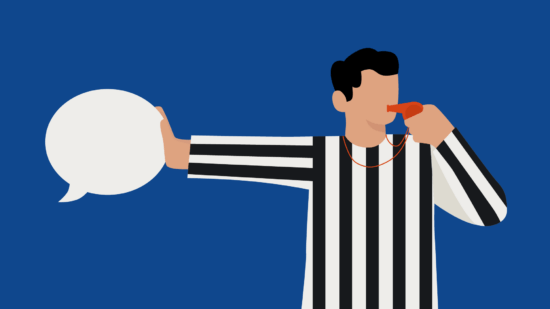
Speculation
Speculation refers to assumptions or guesses about facts or future events without concrete evidence to support them. In legal contexts, speculation is generally not permitted in court, as it lacks factual grounding and can mislead the jury or judge. During trials, attorneys and witnesses are often restricted from making speculative statements, as these could unfairly influence the outcome of the case. At 770GoodLaw, we focus on presenting well-supported evidence and avoiding speculation to ensure that cases are argued based on verifiable facts, helping clients secure fair and reliable outcomes.
The Role of Speculation in Legal Proceedings
In court, speculation is avoided to maintain the integrity of the legal process. Judges, attorneys, and juries must rely on evidence, witness testimony, and factual information to make objective decisions. Speculative statements have the potential to introduce bias, lead to misunderstandings, or detract from the case’s factual foundation. For this reason, attorneys object to speculative statements, and judges often instruct jurors to disregard speculation.
Key considerations in managing speculation include:
- Objection to Speculation: Attorneys may object if a question or statement invites speculation, asking the judge to exclude it from the record to keep the focus on evidence-based facts.
- Expert Testimony Restrictions: While experts provide informed opinions, they must also avoid unsupported conjecture, limiting their testimony to areas where they have verifiable knowledge or data.
- Juror Instructions: Judges instruct jurors to base their decisions only on the evidence presented, cautioning them against making assumptions or filling in gaps based on conjecture.
Types of Speculative Statements
Speculation in court can take various forms, including hypothetical scenarios, assumptions about a person’s motives, or unfounded predictions about future events. Examples of speculative statements include:
- Hypothetical Scenarios: A witness stating what “might have happened” or speculating about alternative outcomes without evidence can mislead jurors, as it lacks factual basis.
- Assumptions about Intentions: Speculating about a defendant’s intentions or mindset is not permissible unless there is evidence to support such claims, as it could lead to unfair biases.
- Future Projections: In cases where damages or recovery are at issue, only expert-supported future projections are allowed. Speculative statements on a plaintiff’s future recovery, for instance, are typically inadmissible unless grounded in expert testimony.
Legal Strategies for Addressing Speculation
To ensure fair proceedings, attorneys take several steps to prevent and address speculative statements during trials. Common strategies include:
- Raising Objections: Attorneys quickly object to speculative statements made by opposing witnesses, asking the judge to instruct the jury to disregard unfounded information.
- Using Expert Witnesses: Attorneys rely on expert witnesses to provide informed opinions supported by data or specialized knowledge, avoiding speculation in complex or technical matters.
- Focusing on Evidence: Building a case based on documented facts and credible witness testimony allows attorneys to avoid reliance on speculative arguments, ensuring the case is grounded in verifiable information.
- Clarifying Testimony: When witnesses offer vague or ambiguous responses, attorneys may clarify or redirect to ensure that only factual statements are part of the testimony.
Importance of Avoiding Speculation in Personal Injury Cases
In personal injury cases, speculation can be especially harmful, as it may lead to inaccurate conclusions about liability, damages, or the extent of injuries. To secure fair compensation, cases must be built on evidence rather than conjecture, as speculative statements could lead to undervalued claims or unfavorable verdicts.
For example:
- Determining Liability: Speculation about what a driver “might have seen” or “might have done” cannot establish liability. Only documented actions and witness observations are relevant in proving fault.
- Calculating Damages: Projections on future medical needs or earning capacity must be based on expert opinions, not guesses, to ensure the plaintiff receives fair compensation for likely future expenses.
- Evaluating Pain and Suffering: In cases where emotional or psychological impacts are at issue, only expert-backed evaluations are admissible. Speculative assumptions could unfairly influence the award amount.
How 770GoodLaw Ensures Speculation-Free Representation
At 770GoodLaw, we recognize the importance of evidence-based arguments and avoid speculative statements to protect the integrity of each client’s case. Our attorneys focus on gathering verifiable information, building strong arguments, and supporting each claim with factual evidence. Our approach includes:
- Collecting Comprehensive Evidence: We gather all relevant records, witness statements, and expert testimony to establish a strong factual foundation, eliminating the need for conjecture.
- Objecting to Speculation: Our attorneys are vigilant in court, objecting to any speculative statements made by opposing witnesses to keep the case focused on verifiable facts.
- Relying on Expert Insights: For areas that require specialized knowledge, such as medical prognosis or accident reconstruction, we consult experts who provide data-driven testimony.
- Presenting Clear and Concise Arguments: By presenting only substantiated facts, we build compelling cases that help clients achieve fair and just outcomes.
Importance of Evidence-Based Legal Representation
Avoiding speculation ensures that legal arguments remain credible, objective, and reliable. Skilled legal representation prioritizes evidence over assumptions, protecting the client’s case from bias or unfounded claims. At 770GoodLaw, we uphold high standards of professionalism, focusing on facts and credible testimony to advocate effectively for our clients’ rights.
Why Choose 770GoodLaw for Speculation-Free Representation
Our commitment to Relentless Reliability and Sincetegrity means that we provide our clients with trustworthy, evidence-based representation. At 770GoodLaw, we help clients achieve justice and fair compensation by building cases on solid factual foundations, steering clear of speculation in all aspects of our legal approach.






